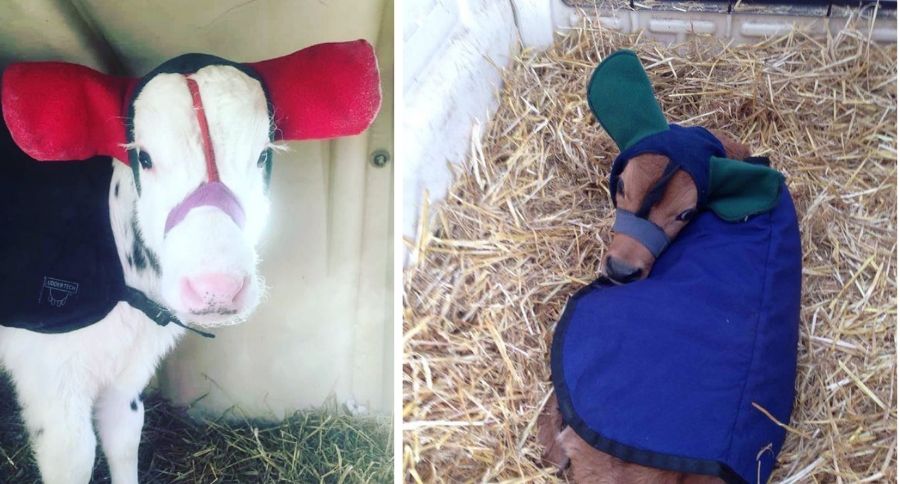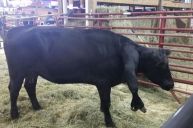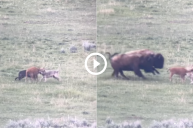This is a story that may feel seasonal but it's too sweet not to talk about all year round. Last February it was reported by NBC 15 that the idea about "Moo Muffs" came after a woman was looking for a way to keep her newborn calves warm and to avoid frostbite. They initially bought calf jackets and tried to make it work.
"In addition to calf jackets, she also bought a pair of calf earmuffs. In an effort to try to save money, she asked her aunt, Kim Ewers, if she thought she could make a pair for her. Ewers has been sewing much of her life and owns her own embroidery business."
The "Moo Muffs" were officially born!
In addition to fleece, "Moo Muffs" includes a water-repellent material on the outside and fully adjustable straps. They also used bright colors so if the calf is able to rub the Velcro or the cow licks the calf and the earmuffs come off, it will be easy to spot them.
Check these out! A farmer (ThisFarmingMan_) invented his version and posted this Tweet! Yet this is not a fashion trend. It's a practical way to keep your calves from getting frostbite.
So it turns out ear muffs for calves to stop them getting frostbite are a real thing... pic.twitter.com/KiiAbTaRYV
— Ciarán Dunne (@ThisFarmingMan_) June 25, 2019
According to Drovers.com, initial signs of frostbite include a cold stiffness to the tips of these body parts.
"As the days go on, the affected parts become hard and leathery before they separate from the healthy tissue below. The initial signs of frostbite in the calf may be subtle unless the feet are involved. In that case, the calf is very reluctant to rise but appears otherwise healthy with a normal appetite. Diagnosis is made on the basis of the signs in the calf (sloughed tips of the ears or tail, pain in the rear feet) and the weather conditions present when the calf was born."
Enjoy this adorable pic of these moo muffs. Too bad winter is so many months away!
How else can you keep your calf warm? Try this warm 'cow blanket' as we know your littles will enjoy this in the barn!
Know someone who would like to add livestock? Tell us in the comments below!
WATCH: What is the most effective and natural tick control in your yard?




